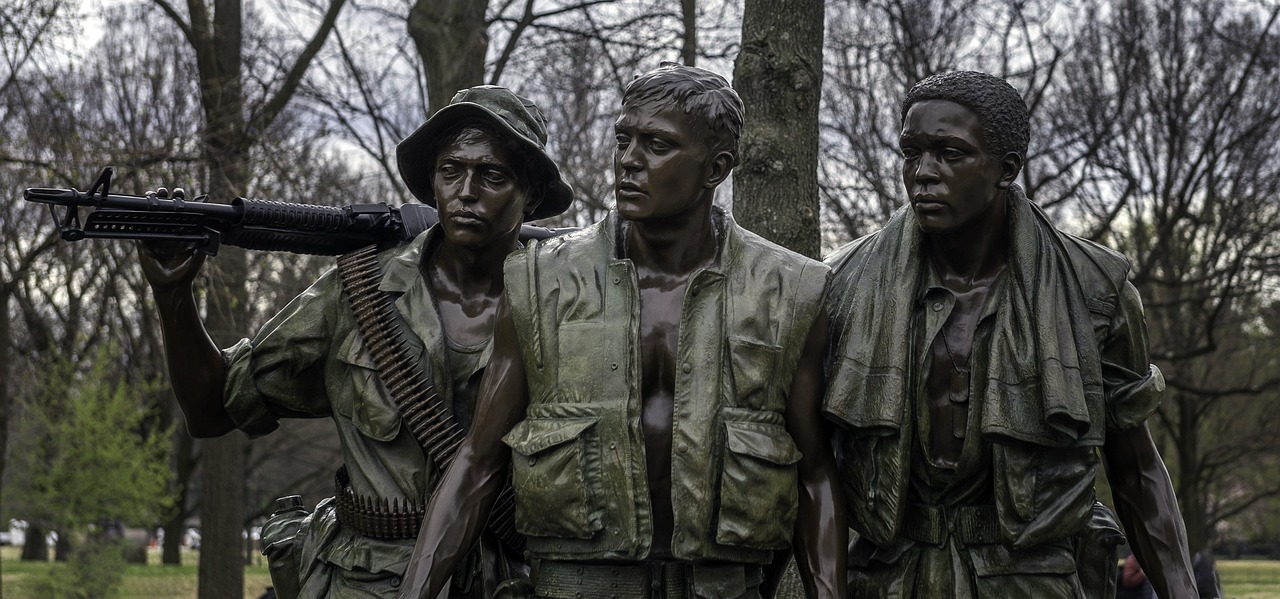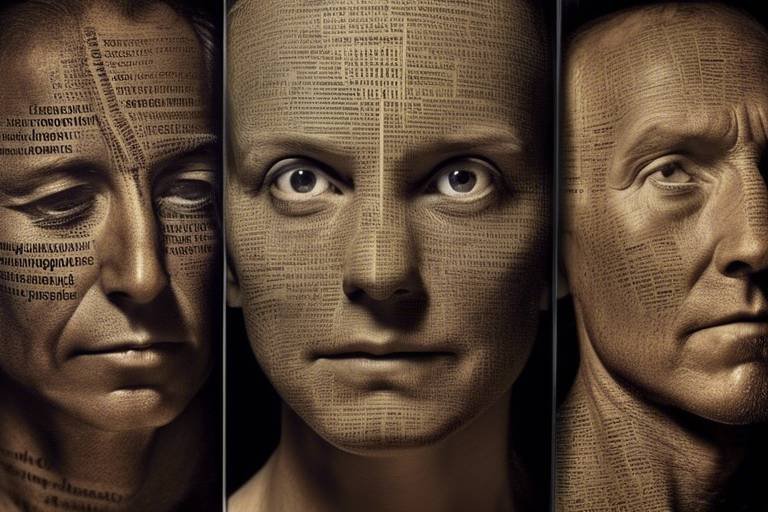Unraveling the Mystery of False Memories
Have you ever thought you remembered something vividly, only to discover later that it never actually happened? This intriguing phenomenon is known as false memories, a captivating area of psychological research that reveals just how malleable our memories can be. False memories are not just simple errors; they can shape our identities, influence our decisions, and even alter our perceptions of reality. In this article, we will embark on a journey to explore the complexities of false memories, examining their definitions, psychological mechanisms, real-life implications, and even strategies for prevention. So, buckle up as we dive deep into the mind's intricate landscape!
At the core of our discussion lies the definition of false memories. These are recollections that are either distorted or entirely fabricated, leading individuals to believe in events that never occurred. Imagine recalling a family vacation that you never took or a conversation that you never had. This isn’t just a one-off occurrence; studies have shown that false memories are surprisingly common in everyday life. They can stem from various sources, such as media influence, social interactions, or even our own imagination. The implications of false memories extend beyond mere confusion; they can challenge our sense of personal identity and reality.
Now that we have a foundational understanding, let’s delve into the psychological mechanisms that contribute to the formation of false memories. Memory is not a flawless recording; it is a complex process that involves encoding, storage, and retrieval. Each step is susceptible to errors, leading to inaccuracies in our recollections. For instance, when we encode information, we might misinterpret or overlook key details, resulting in a skewed memory. This raises the question: how do our brains manage to reconstruct memories, and what factors can lead to these distortions?
Encoding is the first crucial step in memory formation, where our brains transform incoming information into a format suitable for storage. Think of it as taking a snapshot of an event; however, if the camera is out of focus, the resulting image will be blurry. Similarly, if encoding errors occur, they can pave the way for false memories. For example, if you hear a rumor about a friend, and later on, you might mistakenly remember it as a fact. This is where the slippery slope of memory distortion begins.
One fascinating aspect of memory distortion is the influence of suggestion. When others suggest details about an event, our memories can be altered significantly. For instance, if someone asks, “Do you remember that time we went to the beach and saw that amazing sunset?” you might start to believe that such an event actually took place, even if it didn’t. This phenomenon is often exploited in legal settings and therapy, where suggestive questioning can lead to the creation of false memories.
Memory is not a static entity; it is a reconstructive process. Every time we recall a memory, we are essentially piecing it together like a jigsaw puzzle. Over time, this reconstruction can lead to alterations, creating a fertile ground for false memories to sprout. Think of it this way: if you were to retell a story multiple times, each retelling might introduce new details or omit others, ultimately changing the narrative. This is why our memories can feel so real, even when they are not.
Several factors can increase the likelihood of developing false memories. These include:
- Individual Differences: Personal traits, such as suggestibility and imagination, can affect how susceptible someone is to false memories.
- Environmental Cues: Contextual elements, like the presence of certain people or settings, can trigger memory distortions.
- Emotional States: Strong emotions can cloud judgment and alter memory recall, leading to inaccuracies.
Understanding these factors can help us navigate our own memories and recognize when they might be unreliable.
False memories can have profound implications in various aspects of life, particularly in legal contexts. For instance, eyewitness testimonies, often considered reliable, can be tainted by false memories. Imagine a witness confidently identifying a suspect based on a memory that has been influenced by media reports or leading questions. This raises critical questions about the validity of such testimonies and the potential for wrongful convictions.
In legal settings, the consequences of false memories can be dire. Wrongful convictions have occurred due to inaccuracies in eyewitness accounts, highlighting the urgent need for the justice system to address these challenges. It’s a sobering thought that our memories, which we often trust implicitly, can lead to life-altering outcomes.
In therapy, the risk of creating false memories is particularly concerning, especially during the recollection of traumatic events. Therapists must tread carefully, as suggestive techniques can inadvertently lead clients to remember events that never occurred. This raises ethical questions about the responsibility of mental health professionals in guiding their clients through the murky waters of memory recovery.
Understanding the mechanisms behind false memories is essential for prevention. Individuals and professionals can adopt strategies to mitigate their occurrence. For example, being aware of suggestive questioning in therapy and avoiding leading questions can help maintain the integrity of memories. Additionally, fostering an environment that encourages open dialogue about memories can reduce the risk of distortion.
What are false memories?
False memories are recollections of events that either did not occur or are distorted in some way, leading individuals to believe in inaccurate versions of their past.
How do false memories form?
False memories can form through various mechanisms, including encoding errors, suggestive questioning, and the reconstructive nature of memory recall.
Can false memories affect legal proceedings?
Yes, false memories can significantly impact legal proceedings, particularly in eyewitness testimonies, leading to wrongful convictions.
How can false memories be prevented?
Awareness of suggestive influences, avoiding leading questions, and fostering open communication about memories can help reduce the occurrence of false memories.

Understanding False Memories
False memories are a fascinating psychological phenomenon that challenges our understanding of how we remember events. At their core, false memories are recollections of experiences that either never happened or have been altered in some way. Imagine recalling a childhood birthday party that, in reality, was a simple family dinner. This distortion can feel just as real as the actual event, making it difficult for individuals to discern between what truly happened and what their mind has fabricated.
These memories can arise from various sources, including suggestive questioning, media influence, or even conversations with others. The brain, rather than being a perfect recording device, functions more like a computer that retrieves and reconstructs data based on stored information. This reconstructive nature means that each time we recall a memory, it can be subtly altered, leading to the creation of false memories over time.
What’s truly intriguing is the prevalence of false memories in our everyday lives. Studies suggest that nearly everyone has experienced some form of false memory. For instance, you might vividly recall a scene from a movie that you believe you watched as a child, only to discover later that it was actually a film you saw much later in life. This phenomenon can have significant implications for personal identity, as our memories shape our understanding of who we are. When false memories infiltrate our sense of self, they can create confusion and even conflict in our personal narratives.
In the realm of psychology, understanding false memories is crucial, particularly as they relate to individual identity and reliability of memory. As we navigate through life, our memories influence our decisions, relationships, and even our perceptions of reality. Thus, recognizing the potential for distortion in our recollections is essential. It's a bit like being a detective in our own lives, piecing together clues that may or may not be accurate.
To further illustrate the concept of false memories, consider the following table that highlights key characteristics:
| Characteristic | Description |
|---|---|
| Inaccuracy | False memories can contain elements that are completely fabricated or distorted. |
| Vividness | Despite being inaccurate, false memories can feel incredibly real and detailed. |
| Emotional Impact | False memories can evoke strong emotions, similar to genuine memories. |
| Influence of Others | Conversations and suggestions from others can significantly alter our memories. |
As we delve deeper into the psychological mechanisms behind false memories, it becomes evident that understanding this phenomenon is not only fascinating but also essential for navigating our complex mental landscapes. So, the next time you find yourself confidently recalling an event, take a moment to ponder: could it be a false memory?

Psychological Mechanisms Behind False Memories
When we think about memories, we often envision them as precise recordings of our past experiences. However, the reality is much more complex and fascinating. False memories arise from a variety of psychological mechanisms that shape how we encode, store, and retrieve information. Understanding these mechanisms is crucial because it reveals how susceptible we are to memory distortions, which can have profound implications for our sense of self and our interactions with the world.
One of the primary processes involved in the formation of false memories is memory encoding. This is the initial stage where information is transformed into a format that our brains can store. Imagine trying to take a picture of a beautiful sunset with a camera that has a smudged lens; the image captured will be unclear and distorted. Similarly, if we are distracted or stressed during an event, our encoding process may be flawed, leading to inaccurate or incomplete memories. For instance, if you were at a party and someone suddenly yelled, your attention might shift away from the moment, resulting in a fragmented memory of the event.
Encoding errors can occur due to various factors, such as attention, emotion, and context. When we are emotionally charged, our brains tend to prioritize certain details while neglecting others. This selective attention can lead to a skewed representation of the event. For example, you might vividly remember the laughter of your friends at a gathering but forget the details of the food served. As time passes, these gaps can be filled in by suggestions from others or by our own imagination, further distorting the original memory.
Another significant mechanism is the influence of suggestion. This is where external information or leading questions can dramatically alter our memories. Think about how a simple question, like "Wasn't it strange that the lights went out during the concert?" can plant the seed of a false memory. If you were unsure about the event, you might start to believe that the lights did indeed go out, even if they did not. This phenomenon is often exploited in legal contexts, where eyewitness testimonies can be swayed by suggestive questioning, leading to significant consequences.
Moreover, memory is not a static record but a reconstructive process. Each time we recall a memory, we are essentially piecing it together anew, much like assembling a jigsaw puzzle without knowing what the final image should look like. This reconstruction can lead to alterations; for instance, if you recall an event and then discuss it with a friend who remembers it differently, you might unconsciously incorporate their details into your own memory. Over time, these alterations can create a completely different narrative than what actually occurred.
In summary, the psychological mechanisms behind false memories highlight the intricate nature of our memory systems. From the initial encoding errors to the influences of suggestion and the reconstructive nature of memory recall, these processes illustrate just how fragile our recollections can be. Recognizing these factors can empower us to approach our memories with a more critical eye, understanding that they are not always as reliable as we might wish them to be.
- What are false memories? False memories are recollections of events that either did not occur or are distorted versions of actual events.
- How common are false memories? False memories are quite common and can affect anyone, often without their awareness.
- Can false memories be harmful? Yes, false memories can lead to misunderstandings in personal relationships and can have serious implications in legal contexts.
- What can be done to reduce false memories? Being aware of the factors that contribute to false memories, such as suggestive questioning and emotional states, can help mitigate their occurrence.

Encoding and Memory Formation
When we talk about encoding, we're diving into the fascinating first step of how our brains process information. Imagine your brain as a complex filing system, where every experience and piece of knowledge gets neatly categorized and stored for future reference. But here's the kicker: this system isn't always foolproof. Errors can creep in during the encoding phase, leading to what we call false memories. So, how does this happen?
Encoding involves transforming sensory input into a format that the brain can store. Think about it like taking a snapshot on your phone; if the lighting is poor or the camera is fuzzy, the picture won't capture the moment accurately. Similarly, if our attention is divided or if we're stressed, the details of an event might not be encoded properly. This can lead to gaps in our memories, which our minds might fill in later with incorrect information.
Several factors can influence how well we encode memories:
- Attention: If we're distracted during an event, we might not encode all the details.
- Emotion: High emotions can enhance memory formation, but they can also distort it.
- Context: The environment in which we experience something can affect how we remember it later.
Moreover, our brains are not just passive recorders; they actively interpret and reconstruct memories. This means that memories are not static snapshots but dynamic entities that can change over time. When we recall a memory, we don't simply play it back like a video; instead, we reconstruct it, which can lead to alterations. This process is where the magic—and the risk—of false memories comes into play. For instance, if you tell a friend about a funny incident, and they add their interpretation, your memory of that incident might shift to incorporate their perspective, even if it wasn't part of your original experience.
To illustrate this, let’s consider a practical example: imagine you attended a concert with a group of friends. You remember the music, the crowd, and the excitement. But later, when discussing it, one friend mentions a particular song that they loved. Suddenly, you might start to believe that you enjoyed that song too, even if it wasn't your favorite at the time. This is a classic case of how encoding and memory formation can intertwine with social interactions to create false memories.
In essence, encoding is a crucial part of memory formation that sets the stage for how we recall experiences later. Understanding this process helps us appreciate the complexity of our memories and the ease with which they can be influenced. So, the next time you think back on a cherished moment, remember that your brain is not just a tape recorder; it’s a creative storyteller, weaving narratives that can sometimes stray from reality.

Influence of Suggestion
The influence of suggestion on memory is a fascinating aspect of psychology that can dramatically alter our recollections. Think about it: how many times have you had a conversation with a friend about a shared experience, only to find that your memories of the event differ significantly? This is not just a simple case of differing perspectives; it’s often a result of suggestion. When we receive information from others, especially in a leading or suggestive manner, it can seep into our minds and distort the original memory. This phenomenon is particularly potent in situations where the memory is vague or incomplete.
Researchers have conducted numerous studies to illustrate how suggestion can create false memories. One classic study by Elizabeth Loftus involved showing participants a video of a car accident and then asking them leading questions about what they saw. Participants who were asked, “How fast were the cars going when they smashed into each other?” reported higher speeds than those asked, “How fast were the cars going when they contacted each other?” This simple change in wording led to significant differences in the participants' memories of the event, showcasing how suggestive language can shape our recollections.
Moreover, the impact of suggestion isn’t limited to verbal cues. Visual stimuli, such as photographs or videos, can also play a critical role in memory distortion. For instance, if someone is shown an altered image of an event, they may later recall details from that image as if they were part of their actual experience. This blending of reality with suggestion can lead to a complete fabrication of memories, making it challenging to discern what truly occurred.
Additionally, the context in which suggestions are made can influence their effectiveness. When suggestions come from a trusted source, such as a family member or a therapist, individuals are more likely to accept these altered memories as truth. This is particularly concerning in therapeutic settings, where the aim is often to recover repressed memories. If a therapist inadvertently suggests a narrative, it can lead to the creation of false memories that the individual believes to be genuine experiences.
To better understand the influence of suggestion, consider the following key points:
- Leading Questions: These can prompt individuals to recall details that may not have actually happened.
- Source Misattribution: People may confuse the source of their memories, believing an external suggestion to be their own experience.
- Trust and Authority: Suggestions from credible sources can have a stronger impact on memory distortion.
In summary, the influence of suggestion is a powerful mechanism that can reshape our memories in profound ways. It’s a reminder of how fragile and malleable our recollections can be, and it raises important questions about the reliability of memory in both personal and legal contexts. As we navigate our memories, we must remain aware of the potential for suggestion to lead us astray, turning our most cherished recollections into mere fabrications.
Q: What are false memories?
A: False memories are recollections of events that either did not occur or are distorted versions of actual events. They can be influenced by various factors, including suggestion and external information.
Q: How do leading questions affect memory?
A: Leading questions can significantly alter how we remember an event. They can prompt individuals to recall details that were never part of the original experience, resulting in distorted memories.
Q: Can false memories have real-life consequences?
A: Yes, false memories can have serious implications, especially in legal settings where eyewitness testimonies are critical. They can lead to wrongful convictions and other significant errors.
Q: How can I protect myself from developing false memories?
A: Being aware of how suggestion works can help. Try to critically evaluate memories, especially those that seem to have been influenced by others. Keeping a journal of events can also help maintain an accurate record of experiences.

Memory Reconstruction
Memory is often thought of as a video recording of our experiences, but in reality, it’s much more like a creative tapestry woven from various threads of information. When we recall a memory, we aren’t simply playing back a file; we’re reconstructing it. This process of memory reconstruction can lead to fascinating outcomes, but it can also create distortions that result in false memories.
During the act of remembering, our brains sift through a vast archive of information, piecing together fragments of what we think we know. This reconstruction is influenced by numerous factors, including our current emotions, beliefs, and even the context in which we’re recalling the memory. Imagine trying to reconstruct a puzzle without all the pieces; you might fill in the gaps with your own assumptions or external suggestions, leading to a picture that doesn’t accurately reflect reality.
One of the key aspects of memory reconstruction is that it is inherently malleable. Studies have shown that when we recall a memory, we can inadvertently alter it. For instance, if someone suggests a detail about an event that we hadn’t initially remembered, our brain may integrate that suggestion into our memory. This phenomenon is often referred to as the misinformation effect. A classic example of this is the famous study conducted by Elizabeth Loftus, where participants were shown a video of a car accident and later asked leading questions about it. Their recollections were influenced by the wording of the questions, showcasing how easily our memories can be reshaped.
Moreover, the reconstruction process is not just about retrieving information; it’s also about filling in the blanks. When we try to remember something, our brain may draw upon similar experiences or general knowledge to create a coherent narrative. This can lead to the incorporation of details that never actually occurred, but feel plausible enough to be accepted as truth. For instance, if you’ve heard a friend tell a story about a trip to the beach, and later you try to recall your own beach trip, you might unintentionally mix in elements from their story, creating a memory that’s a blend of both experiences.
In essence, memory reconstruction is a complex interplay between recall and imagination. While it allows us to navigate our past and make sense of our experiences, it also opens the door to inaccuracies. Understanding this process is crucial, especially in contexts where precise recollection is vital, such as in legal settings or therapeutic practices.
As we delve deeper into the intricacies of memory reconstruction, it becomes clear that while our memories are a vital part of our identity, they are not as reliable as we might wish. Recognizing the fluid nature of memory can help us approach our recollections with a degree of skepticism, prompting us to question the authenticity of our memories and the influences that may shape them.
- What are false memories? False memories are recollections of events that either did not happen or are distorted versions of actual events.
- How do false memories affect our lives? They can influence our personal identity, relationships, and even legal outcomes, such as eyewitness testimonies.
- Can false memories be created intentionally? Yes, through suggestive questioning or misleading information, false memories can be implanted.
- How can I prevent false memories? Being aware of the factors that influence memory and questioning the accuracy of your recollections can help reduce the risk.

Factors Contributing to False Memories
When we think about our memories, we often assume they are like perfect photographs, capturing every detail of our experiences. However, the reality is much more complex. False memories can arise from a variety of factors, leading us to believe in events that never actually happened or to misremember details of real experiences. Understanding these factors is crucial for grasping how our minds work and why we sometimes find ourselves questioning our own recollections.
One of the primary factors contributing to false memories is individual differences. Each person processes information and stores memories in unique ways. For instance, some individuals may have a more vivid imagination or a tendency to fantasize, making them more susceptible to creating false memories. Additionally, personality traits such as suggestibility can play a significant role. Some people are more open to external influences, which can lead to the incorporation of misleading information into their memories.
Another significant factor is the environmental cues present during the encoding and retrieval of memories. Our surroundings can serve as powerful triggers that influence what we remember. For example, if you hear a story about an event that occurred in a specific location, your brain may inadvertently link that event to your own experiences in a similar setting, leading to the formation of a false memory. This phenomenon is often exacerbated by the presence of misleading information, such as news reports or conversations with others that introduce inaccuracies into our recollections.
Emotional states also play a pivotal role in shaping our memories. When we experience strong emotions, such as fear, joy, or sadness, our brain prioritizes these feelings in the memory-making process. This can lead to enhanced recall of certain details while distorting others. For instance, if someone witnesses a traumatic event, their emotional response may cause them to remember specific aspects vividly while completely altering or erasing other details. This selective memory can create a skewed version of reality, contributing to the formation of false memories.
Moreover, the reconstructive nature of memory cannot be overlooked. Unlike a video recording, our memories are not stored in a linear fashion. Instead, they are reconstructed each time we recall them, which can introduce errors. This process is influenced by the aforementioned factors—individual differences, environmental cues, and emotional states. Every time we retrieve a memory, we may inadvertently alter it, leading to the creation of false memories over time.
In summary, the formation of false memories is a complex interplay of various factors. Recognizing the influence of individual differences, environmental cues, emotional states, and the reconstructive nature of memory can help us better understand why we sometimes remember things that never happened or recall details inaccurately. By being aware of these influences, we can approach our memories with a more critical eye and perhaps even question the authenticity of our recollections.
- What are false memories?
False memories are recollections of events that either did not occur or are distorted versions of actual events. - How do false memories affect our lives?
They can impact personal identity, relationships, and even legal situations, such as eyewitness testimonies. - Can false memories be prevented?
While it's challenging to completely prevent false memories, understanding their contributing factors can help mitigate their occurrence. - Are some people more prone to false memories than others?
Yes, individual differences such as personality traits and suggestibility can influence susceptibility to false memories.

Real-Life Examples of False Memories
False memories are not just a theoretical concept; they manifest in real-life situations, often with profound implications. One of the most striking examples comes from the realm of eyewitness testimony. Imagine being a juror in a courtroom, relying on the memories of witnesses to determine the fate of a defendant. Yet, what if those memories are tainted by suggestion or misinformation? Research has shown that eyewitness accounts can be notoriously unreliable. In fact, studies reveal that about 75% of wrongful convictions involve mistaken eyewitness identifications. This highlights how easily our memories can be manipulated, leading to devastating consequences.
Consider the case of Elizabeth Loftus, a renowned psychologist who has conducted extensive research on false memories. In one of her experiments, she asked participants to recall a childhood event in which they supposedly lost their parents in a shopping mall. Many participants, despite the event never occurring, confidently described details of the experience, illustrating how easily our minds can fabricate memories. This phenomenon raises an important question: if our memories can be so easily altered, how can we trust our recollections?
Another compelling example can be found in the realm of therapy. Therapists sometimes use techniques aimed at recovering repressed memories, particularly in cases of trauma. However, there have been instances where individuals have emerged from therapy with vivid memories of events that never happened. For instance, a woman might be convinced she was abused as a child after undergoing suggestive therapeutic techniques, only to later discover that these memories were entirely fabricated. This brings to light the ethical dilemmas therapists face when dealing with memory recovery.
To further illustrate the impact of false memories, let’s look at a few notable cases:
- The McMartin Preschool Case: This infamous child molestation case in the 1980s involved numerous children who later recounted stories of abuse that were later found to be influenced by leading questions from investigators.
- The "Lost in the Mall" Study: In Loftus’s experiment, participants were convinced they had been lost in a mall as children, despite it never occurring, showcasing how suggestive techniques can create false memories.
- Recovered Memories in Therapy: Instances where individuals recalled traumatic events during therapy sessions, only to later question the validity of those memories, demonstrating the potential for memory distortion in therapeutic contexts.
These examples serve as a stark reminder of the fragility of our memories and the potential ramifications of false recollections. They not only affect individual lives but can also have broader societal implications, particularly in legal settings where memory can determine justice. As we delve deeper into the complexities of memory, it becomes increasingly clear that understanding the mechanisms behind false memories is crucial in navigating our personal and collective histories.
What are false memories?
False memories are recollections of events that either did not occur or are distorted in some way. They can be created through suggestive questioning, misinformation, or the natural reconstructive nature of memory.
How common are false memories?
False memories are surprisingly common. Research suggests that many people have experienced them at some point in their lives, often without realizing it.
Can false memories affect legal cases?
Yes, false memories can have serious implications in legal cases, particularly in eyewitness testimonies. Inaccurate memories can lead to wrongful convictions, making it essential for the justice system to understand the nature of memory.
How can we prevent false memories?
Awareness of the factors that contribute to false memories is the first step in prevention. Techniques such as avoiding leading questions and being cautious with suggestive information can help mitigate their occurrence.

Legal Implications of False Memories
The phenomenon of false memories carries significant legal implications that can dramatically alter the course of justice. Imagine being accused of a crime you didn't commit, only to find that a witness's memory of the event is not just flawed, but entirely fabricated. This unsettling reality highlights how false memories can lead to wrongful convictions, raising serious questions about the reliability of eyewitness testimonies. In fact, studies have shown that a substantial percentage of wrongful convictions are linked to mistaken eyewitness identifications, where the witness confidently recalls events that never happened.
One of the most troubling aspects of false memories in legal contexts is the confidence factor. Witnesses often express high confidence in their recollections, which can mislead juries into believing their accounts are accurate. This confidence can stem from suggestive questioning by law enforcement or exposure to misleading information post-event. For instance, if a witness hears a narrative about a crime that includes certain details, their memory may unconsciously adapt to fit that narrative, creating a false memory that feels just as real as the actual event.
Moreover, the legal system faces the challenge of distinguishing between reliable and unreliable memories. In court, the admissibility of eyewitness testimony can hinge on the perceived accuracy of the witness's memory. This creates a complex situation where the truth can become obscured by the very nature of human memory. Courts are increasingly aware of these issues, leading to discussions about the need for reforms in how eyewitness testimony is handled. For example, implementing standardized procedures for police lineups and witness interviews can help reduce the risk of suggestive influences that lead to false memories.
To illustrate these points further, consider the following table that outlines some key cases where false memories have had a profound impact on the legal outcomes:
| Case | Year | Outcome | Key Factor |
|---|---|---|---|
| Ronald Cotton | 1984 | Wrongful Conviction | Eyewitness Misidentification |
| Jennifer Thompson | 1984 | Wrongful Conviction | False Memory from Suggestive Interviewing |
| George Allen Smith | 2005 | Conviction Overturned | Misleading Information |
These cases exemplify the dire consequences that can arise from false memories in legal settings. They underscore the importance of rigorous standards for collecting and evaluating eyewitness testimony. As we continue to delve into the complexities of memory, it becomes increasingly clear that understanding the psychological underpinnings of false memories is essential for ensuring justice is served. The legal system must adapt to these insights, integrating psychological research into courtroom practices to better protect the innocent and uphold the integrity of the judicial process.
- What are false memories? False memories are recollections of events that either did not occur or are distorted versions of real events.
- How do false memories affect legal cases? They can lead to wrongful convictions if eyewitnesses confidently recall events inaccurately.
- What factors contribute to false memories? Suggestive questioning, exposure to misleading information, and the reconstructive nature of memory can all contribute.
- Can false memories be prevented? While it's challenging, understanding the mechanisms behind memory formation can help reduce their occurrence.

Therapeutic Contexts and False Memories
In the realm of therapy, the concept of false memories presents a unique set of challenges and ethical dilemmas. When therapists guide clients through the process of recalling past events, especially traumatic ones, there is a risk that the memories retrieved may not be entirely accurate. This phenomenon can lead to the creation of false memories, where individuals come to believe in the authenticity of events that never occurred or were significantly altered in their recollection.
One of the most concerning aspects of this issue is the potential impact on a client's mental health. Imagine you're sitting in a therapy session, and the therapist asks you to dig deep into your past. As you recount your experiences, suggestions or leading questions might inadvertently shape your memories. For instance, a therapist might ask, "How did it feel when that incident happened at the family reunion?" This type of questioning can plant seeds of doubt and confusion, leading to the creation of memories that never existed. The mind is a powerful tool, and sometimes it can fill in the gaps with fabrications that feel just as real as actual events.
Moreover, the ethical implications of such occurrences cannot be overstated. Therapists are tasked with the responsibility of ensuring that their methods do not cause harm. However, the line between helping a client recover from trauma and inadvertently creating false memories can be perilously thin. Some key considerations include:
- Informed Consent: Clients should be made aware of the potential for false memories during the therapeutic process, allowing them to make informed decisions about their treatment.
- Therapeutic Techniques: Therapists should employ techniques that minimize suggestibility, such as open-ended questions, to avoid leading clients toward false recollections.
- Continuous Education: Mental health professionals should stay informed about the latest research on memory and its implications for therapy, ensuring they use best practices.
Additionally, the ramifications of false memories in therapy extend beyond the individual. They can affect family dynamics, relationships, and even legal matters if the memories are brought into the courtroom as evidence. For example, a client may recover a memory of abuse that never happened, leading to accusations against innocent parties. This highlights the critical need for therapists to tread carefully and to validate memories with caution.
In summary, while therapy can be a powerful tool for healing, it is essential for both therapists and clients to recognize the potential for false memories. By fostering an environment of trust, transparency, and ethical practices, the therapeutic process can focus on genuine healing rather than the murky waters of distorted recollections. As we navigate this complex landscape, ongoing dialogue and education within the mental health community will be vital to ensure that therapy remains a safe and effective avenue for personal growth.
- What are false memories? False memories are recollections of events that either did not occur or are distorted versions of actual events.
- How do false memories affect therapy? They can lead to inaccurate recollections of past events, potentially causing harm to the client and affecting relationships.
- Can therapists prevent false memories? By using non-suggestive questioning techniques and ensuring informed consent, therapists can mitigate the risk of creating false memories.
- What should clients know about false memories? Clients should be aware that memories can be unreliable and that therapeutic techniques may influence their recollections.

Preventing False Memories
Understanding the mechanisms behind false memories is crucial for mitigating their occurrence in our daily lives. Just like a computer can get corrupted data from faulty input, our memories can be distorted by various factors. So, how can we safeguard our recollections? Here are some strategies that individuals and professionals can adopt to reduce the risk of developing false memories.
First and foremost, being aware of the suggestive nature of questions can significantly help. For example, if someone asks, “Do you remember when you tripped at the party last year?” they might unintentionally implant a memory that never actually happened. Instead, it’s better to ask open-ended questions that encourage a more accurate recall, like “What do you remember about the party?” This simple shift in questioning can lead to more reliable memories.
Another effective strategy is to maintain a memory journal. By regularly documenting events, thoughts, and feelings, you create a tangible record that can serve as a reference point. This practice not only enhances memory accuracy but also fosters a deeper understanding of your experiences. When you look back at your entries, you can compare your current recollections to what you originally wrote, helping to identify any discrepancies.
Additionally, emotional regulation plays a vital role in memory accuracy. High-stress situations can lead to heightened emotions, which may cloud our recollections. Practicing mindfulness or other stress-reduction techniques can help you stay calm and improve your ability to recall events accurately. It’s like tuning a musical instrument; the clearer your mind, the more precise your memories will be.
Moreover, it’s important to be cautious with external information. When discussing shared experiences, be mindful of the details shared by others. They might inadvertently influence your memory. Try to focus on your own recollections rather than getting swayed by someone else’s version of events. This is particularly crucial in settings like therapy, where the therapist's wording can significantly impact a client's memories.
Finally, fostering a culture of open communication can also help prevent false memories. Encourage discussions about memories in a non-judgmental environment. When people feel safe to express their thoughts, they are less likely to feel pressured to conform to a particular narrative. This can create a more accurate collective memory, reducing the likelihood of distortions.
In summary, while false memories are a fascinating aspect of human cognition, they can have real-world implications. By employing strategies such as mindful questioning, maintaining a memory journal, regulating emotions, being cautious with external influences, and fostering open communication, we can significantly reduce the risk of false memories in our lives.
- What are false memories?
False memories are recollections of events that either did not occur or have been distorted in some way. They can feel very real to the person recalling them.
- How can I tell if a memory is false?
It can be challenging to identify false memories. However, inconsistencies with known facts or the inability to recall specific details can be indicators.
- Can therapy create false memories?
Yes, in some cases, suggestive techniques or leading questions during therapy can result in the creation of false memories.
- What should I do if I suspect a memory is false?
It may be helpful to discuss your concerns with a trusted friend or a professional who can help you explore the memory further.
Frequently Asked Questions
- What are false memories?
False memories are recollections of events that either did not occur or are distorted in some way. They can feel incredibly real to the person experiencing them, making it difficult to distinguish fact from fiction.
- How do false memories form?
False memories can form through various psychological mechanisms, including encoding errors, the influence of suggestion, and memory reconstruction. When we recall a memory, our brain reconstructs it, which can lead to inaccuracies.
- What role does suggestion play in false memories?
Suggestion plays a significant role in the creation of false memories. External information or leading questions can alter our recollections, leading us to believe in events that never actually happened.
- Can emotions affect false memories?
Absolutely! Emotional states can heavily influence how memories are formed and recalled. High-stress situations or intense emotions can distort our memories, making them more susceptible to inaccuracies.
- Are false memories common?
Yes, false memories are quite common. Most people experience them at some point in their lives, often without realizing it. They can occur in everyday situations, such as recalling details of a conversation or an event.
- What are the legal implications of false memories?
False memories can have serious consequences in legal contexts, particularly in eyewitness testimonies. Inaccurate memories can lead to wrongful convictions, highlighting the need for caution in relying solely on memory in the justice system.
- How can false memories be prevented?
While it's challenging to eliminate false memories entirely, understanding their mechanisms can help. Strategies include being mindful of how questions are framed, avoiding leading suggestions, and maintaining a healthy skepticism about our recollections.
- What are the ethical concerns regarding false memories in therapy?
In therapeutic settings, there are ethical concerns about the creation of false memories, especially when recovering traumatic memories. Therapists must navigate these waters carefully to avoid implanting inaccuracies in their clients' recollections.



















